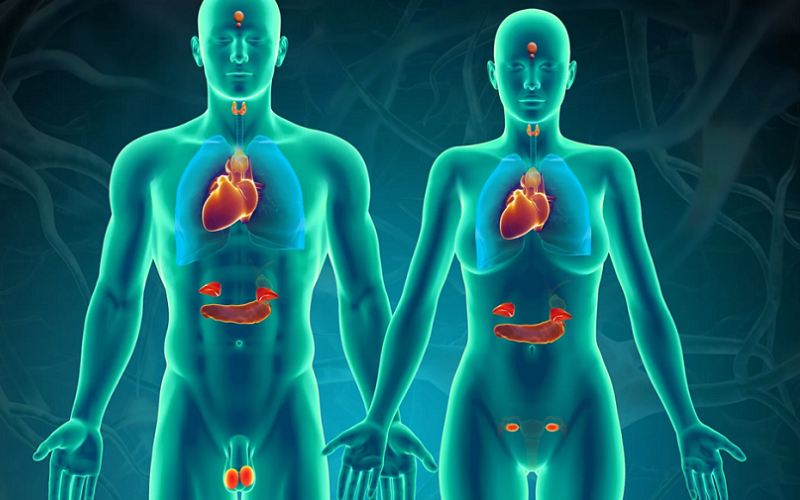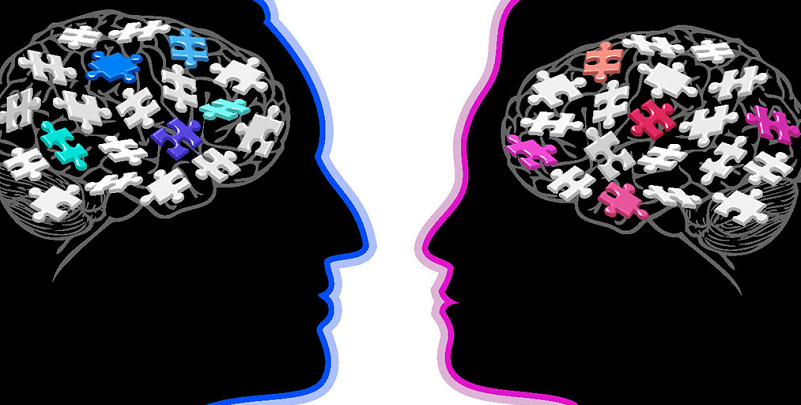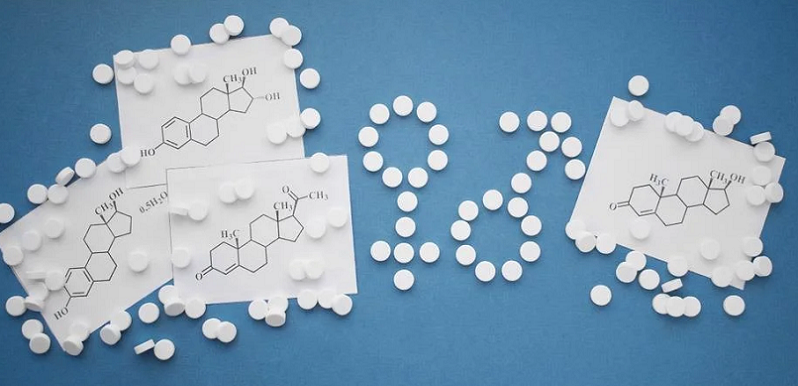
For decades, our understanding of sex hormones like estrogen, progesterone, and testosterone has been predominantly confined to their roles in reproductive health. However, recent scientific advancements have unearthed their significant, yet often overlooked, influence on cognitive health, particularly as we age. From dissecting the basic functions of sex hormones to examining their pivotal roles in memory, attention, and executive functions, we examine how these hormones shape our cognitive landscape over time.
Contents
Understanding Sex Hormones
Before jumping into how sex hormones influence the aging brain, it’s essential to understand what these hormones are and their primary roles in the body. Sex hormones, predominantly estrogen, progesterone, and testosterone, play pivotal roles in both reproductive and non-reproductive functions. Their influence extends beyond the reproductive system, impacting various aspects of physical and mental health, including the brain’s structure and function.
Definition and Types of Sex Hormones
Sex hormones are powerful chemical messengers produced primarily by the ovaries in females and the testes in males. They play a crucial role in sexual development, reproduction, and many other vital bodily processes. Three primary sex hormones – estrogen, progesterone, and testosterone – have been the focus of much research due to their extensive effects throughout the body.
Estrogen
Estrogen, often referred to as the primary “female” hormone, is crucial in the development of female secondary sexual characteristics and reproductive functions. However, its role extends to influencing bone density, skin health, and even mood regulation. In females, estrogen is mainly produced in the ovaries, while in males, smaller amounts are produced in the testes.
Progesterone
Progesterone, another key hormone in females, plays a significant role in regulating the menstrual cycle and maintaining pregnancy. It also has a role in influencing mood and cognitive function. While primarily associated with female reproductive health, progesterone is also present in males, albeit in lower concentrations.
Testosterone
Testosterone is often labeled as the primary “male” hormone, instrumental in the development of male secondary sexual characteristics and spermatogenesis. However, similar to estrogen in males, females also produce testosterone, albeit in smaller quantities. It plays a role in muscle mass, bone density, and libido in both sexes.
General Functions of Sex Hormones
The functions of sex hormones extend far beyond their roles in the reproductive system. These hormones are also critical in various non-reproductive aspects of health and well-being, influencing everything from bone density to brain function [1].
Reproductive Roles
In terms of reproduction, sex hormones are fundamental. Estrogen and progesterone regulate the menstrual cycle, prepare the body for pregnancy, and maintain gestation. In males, testosterone is vital for the production of sperm and maintaining reproductive tissues.
Non-Reproductive Roles
Beyond reproduction, sex hormones have a myriad of other roles. Estrogen, for instance, affects bone health, cardiovascular health, and even skin elasticity. Testosterone contributes to muscle strength, bone density, and red blood cell production. Progesterone, while less studied, appears to have roles in brain function and may even have neuroprotective effects.

The Aging Brain
As we turn our attention to the aging brain, it’s important to understand the natural changes that occur over time. Aging is an inevitable process that affects all organs, including the brain. These changes are complex and multifaceted, impacting both the brain’s structure and its functionality. By comprehending these alterations, we can better appreciate how sex hormones might interact with and influence these age-related changes.
Normal Aging Process in the Brain
The aging process brings about a series of changes in the brain. While these changes are a natural part of aging, they vary significantly among individuals. Understanding these changes is crucial for grasping how hormones might impact cognitive health as we age [2].
Structural Changes
As we age, our brains naturally undergo structural changes. These include a reduction in brain volume and weight, primarily due to the loss of neurons, the nerve cells responsible for transmitting and processing information. Additionally, there is a decrease in the density of dendrites, which are the extensions of neurons that facilitate communication between cells. The white matter, which contains the nerve fibers that connect different parts of the brain, also experiences changes, often leading to slower cognitive processing speeds.
Functional Changes
Alongside structural changes, the aging brain also experiences functional changes. There is a general decline in blood flow to the brain, which can affect its overall efficiency and health. Changes in neurotransmitter systems, which are critical for communication within the brain, also occur. These neurotransmitter changes can influence various cognitive functions, including memory, attention, and problem-solving skills.
Cognitive Functions Affected by Aging
As the brain ages, there are noticeable changes in cognitive functions. These changes can impact daily life, but it’s important to note that they are a normal part of aging and vary widely among individuals.
Memory
One of the most commonly reported aspects of cognitive aging is changes in memory. Older adults often experience difficulties with short-term memory or working memory. However, it’s important to differentiate these changes from those seen in dementia, which are more severe and debilitating. Long-term memory and procedural memory, such as how to perform certain tasks, are generally less affected by aging.
Attention
Changes in attention, particularly the ability to maintain sustained attention over prolonged periods, are also common with aging. Older adults might find it more challenging to focus on tasks, especially in environments with lots of distractions.
Executive Functions
Executive functions, which include skills like planning, organizing, problem-solving, and multitasking, can also be impacted by aging. There may be a decline in the ability to perform complex tasks that require these skills, although these changes are highly individual and can be influenced by lifestyle factors and overall health.

Impact of Sex Hormones on the Aging Brain
Understanding the role of sex hormones in the aging process of the brain is crucial, as these hormones significantly influence cognitive health beyond their reproductive functions. As we age, the levels of these hormones change, which can have profound effects on brain function.
Effects of Estrogen on Brain Health
Estrogen is known for its significant impact on brain health, especially in women. Its influence extends well beyond reproductive functions, impacting cognitive abilities and brain aging [3].
Neuroprotective Effects
Estrogen has been shown to have neuroprotective properties. It helps in maintaining the structure and health of neurons and is involved in the growth and repair of neural networks. Estrogen also enhances brain plasticity, which is crucial for learning and memory. This hormone’s neuroprotective effect is particularly noticeable in the hippocampus, a brain area vital for memory and learning.
Cognitive Enhancement
Studies suggest that estrogen plays a role in enhancing cognitive functions, particularly memory and attention. Women often experience changes in these cognitive abilities during menopause, when estrogen levels significantly decrease. The link between estrogen and cognitive functions like verbal memory and fluency is an area of ongoing research, with many studies indicating that estrogen supplementation may help in mitigating cognitive decline associated with aging.
Role of Testosterone in Cognitive Health
Testosterone, often considered the primary male sex hormone, also plays a significant role in brain health in both men and women.
Memory and Spatial Abilities
Testosterone has been linked to memory and spatial abilities. Higher levels of this hormone are often associated with better performance in spatial tasks and memory recall. Testosterone may also influence the brain areas responsible for these cognitive functions, such as the hippocampus and other regions involved in spatial navigation.
Mood Regulation
Besides cognitive functions, testosterone is also important in regulating mood. Changes in testosterone levels can affect emotional well-being, with low levels often linked to mood disorders such as depression. Maintaining balanced testosterone levels can be crucial for emotional stability and overall mental health, particularly in older adults [4].
Progesterone’s Influence on Brain Function
Progesterone is another key hormone that has been somewhat less studied in the context of brain aging but holds significant potential in influencing brain health.
Neurogenesis
Progesterone contributes to the growth and development of neurons (neurogenesis) and the formation of myelin, which insulates nerve fibers. This process is vital for efficient signal transmission in the brain and overall neural health.
Stress Response
Progesterone also plays a role in the brain’s response to stress. It modulates the activity of GABA, a neurotransmitter that has a calming effect on the brain. By influencing GABA, progesterone can help in managing stress responses and maintaining emotional balance.
Hormonal Changes During Aging
As individuals age, one of the most significant changes they experience is in their hormonal levels. These changes are not just limited to the decline in reproductive hormones but also encompass a wide range of physiological alterations that can have profound effects on overall health, including cognitive function. Understanding these hormonal changes is key to comprehending how they influence the aging brain.
Menopause and Estrogen Decline
Menopause marks a significant change in a woman’s life, primarily characterized by the cessation of menstruation and a significant decline in estrogen levels. This transition typically occurs in a woman’s late 40s or early 50s.
Effects on Brain Function
The decline in estrogen during menopause can have noticeable effects on brain function. Women may experience changes in memory, attention, and other cognitive abilities during this time. The decrease in estrogen is also associated with an increased risk of developing neurodegenerative diseases such as Alzheimer’s [5].
Impact on Mood and Well-being
The hormonal fluctuations during menopause can also impact mood and overall well-being. Many women report experiencing mood swings, depression, or anxiety during this period. The role of estrogen in mood regulation is a critical area of study in understanding menopause-related changes.
Andropause and Testosterone Decline
Andropause, often referred to as male menopause, involves a gradual decline in testosterone levels in men as they age. This process is generally more subtle and occurs over a longer period compared to menopause in women.
Cognitive Effects
Decreased testosterone levels in men have been linked to changes in cognitive functions, particularly in memory and spatial abilities. As testosterone levels drop, some men may experience a gradual decline in these cognitive domains.
Physical and Emotional Health
Lower testosterone levels can also affect physical health, including muscle mass and bone density, and emotional health, leading to issues such as fatigue, depression, and a decrease in overall well-being.
Overall Hormonal Fluctuations and Cognitive Implications
The hormonal changes that occur during aging are not limited to sex hormones alone. Other hormones, such as thyroid hormones, cortisol, and insulin, also undergo changes and can influence cognitive health.
Interplay with Brain Health
The interplay between these hormonal changes and brain health is complex. Hormones interact with neurotransmitters, influence brain plasticity, and affect the vascular health of the brain. These interactions are crucial for maintaining cognitive function and responding to the challenges of aging.
Potential for Therapeutic Interventions
Understanding these hormonal changes opens potential avenues for therapeutic interventions. Hormone replacement therapy, lifestyle changes, and dietary modifications can be part of strategies to mitigate the cognitive effects of aging.
References
[1] The association between sex hormones and the change in brain-predicted age difference in older women
[2] Role of Estrogen and Other Sex Hormones in Brain Aging. Neuroprotection and DNA Repair
[3] Sex hormones and cognition in aging
[4] Sex Hormones and Healthy Psychological Aging in Women
[5] Estrogen receptors and the aging brain

